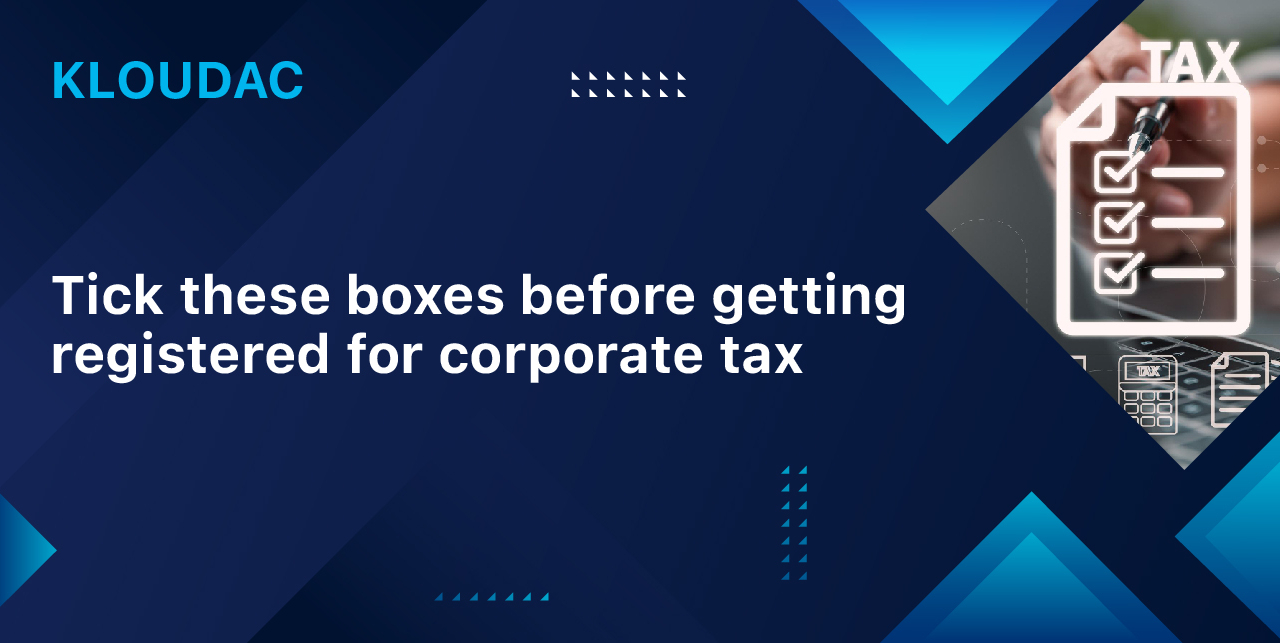Assume you’ve finally embarked on your entrepreneurial journey, your dream business is taking shape, and you’re ready to dive into the corporate world. But wait – have you ticked all the necessary boxes before registering for corporate tax? In the whirlwind of starting a business, it’s easy to overlook crucial steps that could impact your financial health down the line. In this blog, we’ll explore the essential checkpoints you need to mark off before taking the plunge into corporate tax registration.
Understanding Corporate Tax Basics
Before delving into the specifics, it’s vital to grasp the fundamentals of corporate tax. What exactly is corporate tax, and how does it differ from personal income tax? Understanding these distinctions will lay a solid foundation for your tax journey.
Assessing Your Business Structure
The structure of your business – whether it’s a sole proprietorship, partnership, corporation, or LLC – significantly impacts your tax obligations. Each structure comes with its own set of tax implications and benefits. It’s essential to carefully evaluate which structure aligns best with your business goals and tax strategy.
Meeting Legal Requirements
Registering for corporate tax involves complying with various legal requirements set forth by tax authorities. From obtaining the necessary licenses and permits to fulfilling state and federal tax obligations, ensuring legal compliance is non-negotiable. Failure to meet these requirements can result in penalties and legal complications down the road.
Calculating Taxable Income
Determining your taxable income is a critical step in the corporate tax registration process. This involves calculating your business’s profits, deducting allowable expenses, and applying applicable tax rates. Accuracy is key here, as any discrepancies could trigger audits or tax liabilities.
Exploring Tax Incentives and Deductions
Did you know that the tax code offers numerous incentives and deductions for businesses? From research and development credits to deductions for capital investments, taking advantage of these opportunities can significantly reduce your tax burden. However, navigating the complex landscape of tax incentives requires careful planning and documentation.
Counterarguments/Challenges/Bottlenecks
Some might argue that hiring a professional tax advisor or accountant is an unnecessary expense for small businesses. However, the expertise and guidance they provide can save you time, money, and headaches in the long run by ensuring compliance and maximizing tax savings.
Remember, corporate tax registration is not a one-size-fits-all process. Each business is unique, and it’s essential to tailor your approach to your specific circumstances. Stay informed, stay proactive, and don’t hesitate to seek assistance when needed.
Ready to tackle corporate tax registration with confidence? Reach out to a tax advisor or accountant today at KLOUDAC to ensure you’re on the right track. And don’t forget to share your experiences and insights with us – we’d love to hear from you!
KLOUDAC Accounting Firm Dubai, UAE
Before diving headfirst into corporate tax registration, it’s crucial to conduct thorough research, assess your business needs, and seek professional guidance if necessary. By ticking off these essential boxes, you’ll set yourself up for success in navigating the intricate world of corporate taxation.
